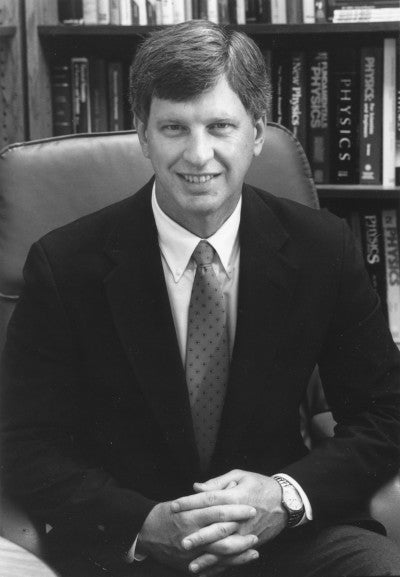
Academic Head
Jack Martin Wilson received a bachelor of arts degree in physics from Thiel College in 1967. He earned his master’s degree in physics in 1970 and his doctorate in physics in 1972 from Kent State University.
In 1990 Wilson accepted appointment as Professor of Physics and Director of the Lois J. and Harlan E. Anderson Center for Innovation in Undergraduate Education at Rensselaer Polytechnic Institute. In 1998 Wilson was the J. Erik Jonsson ’22 Distinguished Professor of Physics, Engineering Science, Information Technology, and Management at Rensselaer where he also had served as a Dean, Research Center Director, and Provost. In these roles, Wilson led a campus wide process of interactive learning and restructuring of the educational program, known for the design of the Studio Classrooms, the growth of the Distributed Learning Program, the creation of the Faculty of Information Technology, and the initiation of the student mobile computing (universal networked laptop) initiative.
Before being appointed at Rensselaer, he served at the University of Maryland, College Park and as an officer of the American Association of Physics Teachers, the American Institute of Physics, and the American Physical Society.
Dr. Wilson, also known as an entrepreneur, was the founder (along with Degerhan Usluel and Mark Bernstein), first president, and only chairman of LearnLinc Corporation (now Mentergy), a supplier of software systems for corporate training to Fortune 1000 Corporations. He has served as a consultant to many computing and communications firms including IBM, AT&T, Lucent, Hewlett Packard. Dr. Wilson served as one of 16 International Consulting Scholars for the IBM Corporation.
Wilson is nationally and internationally known for his leadership in the reform of higher education programs, winning the Theodore Hesburgh Award, the Boeing Award, and the Pew Charitable Trust Prize for his innovative programs.
